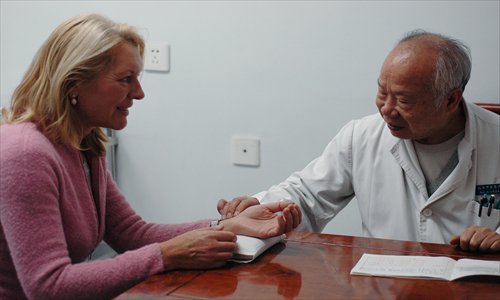
Social security for foreign employees
This week the city's two major political gatherings, the Shanghai People's Congress (SPC) and the Shanghai Committee of the Chinese People's Political Consultative Conference (CPPCC), came to an end after the discussions on the city's future raged loud and long. Here are 10 of the hot topics that aroused special interest.
1. Social security for foreign employees
This came into effect on October 15, 2011 and since then all foreign employees in Shanghai have had to pay a monthly social insurance tax. This was optional before but the introduction of the tax has left both employees and employers unhappy.
Under the new social insurance system foreign employees now qualify for medical insurance, workers compensation insurance, maternity benefits, unemployment benefits and a pension.
However, several proposals at the sessions claimed the new policy places a particularly heavy financial burden on international companies who hire foreign employees and could affect the recruitment of skilled workers.
In Shanghai foreign employees have cast doubts about the efficacy of the policy saying that foreigners and their families hardly ever used China's social security system.
Policymakers and political advisors said at the sessions that the government should postpone implementing this policy until the details have been finalized and consensus with employers attained.
As in previous years there were proposals calling on the Shanghai health authorities to ensure foreigners living in Shanghai have access to the same level of medical care that Chinese residents enjoy.
To achieve this, SPC delegates suggested the government open the market to allow foreign companies offer a full range of medical services in the city. At present foreign health companies are limited in what they can provide.
It was also suggested that city hospitals work with international insurance companies to ensure that foreigners are covered if they are treated in city hospitals.
2. Air pollution
Despite the official figures for air pollution during the period of the two sessions showing Shanghai had attained "good" air quality on 337 days last year, residents of the city have been expressing doubt about the accuracy of the readings.
Several SPC delegates called for the government to introduce the reporting of PM2.5 (particle matters smaller than 2.5 microns) - pollutants which contain toxic substances that cause serious air pollution.
Mayor Han Zheng said in the annual government work report that Shanghai had begun recording PM2.5 as early as 2005. At present PM2.5 accounted for more than 50 percent of the total particle pollution recorded.
Han admitted that if PM2.5 levels were included, the number of "good" air days would drop by 15 percent.
"This is a problem that we have to face unafraid. We cannot pretend to be ostriches and neglect this," Han said. "Only with open and transparent figures can we effectively fight pollution."
3. Cheap metro fares
One SPC delegate suggested that the Shanghai metro authority might borrow the idea of the "early bird" system from the subway authority in Melbourne, Australia. It was suggested to make metro trips free before 7 am to ease rush hour congestion.
The delegate said the authority should consider the feasibility of a system where tickets had different prices according to the times passengers used them.
Discussing the September 27 accident when a Shanghai metro train rammed into another injuring nearly 300 people, delegates suggested there should be more intensive training for staff on newly opened lines and there should be more emergency drills for rail workers.
There should also be more intensive maintenance and safety work on the older but crowded lines.
4. Maotai ban
Several delegates called for a ban on Maotai, the most famous liquor in China. They want the fiery liquid placed on the banned list for officials.
They said the liquor, which can cost up to 2,000 yuan ($316.91) for a vintage bottle, was no longer the drink of ordinary people but an exclusive luxury product often involved in official corruption and bribery. Some delegates wanted Maotai placed on the list of forbidden items for officials along with gift cards and cash. Shares in Maotai fell 5.98 percent the day after the proposals were submitted.

Copyright ©1999-2011 Chinanews.com. All rights reserved.
Reproduction in whole or in part without permission is prohibited.